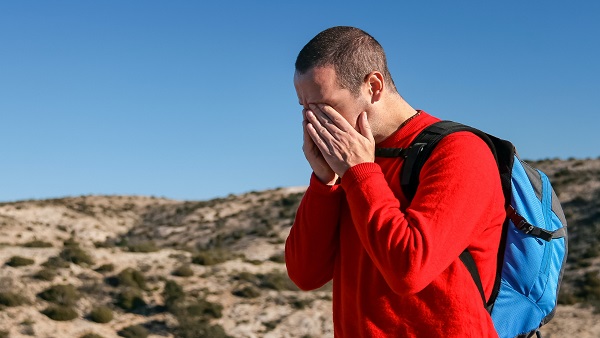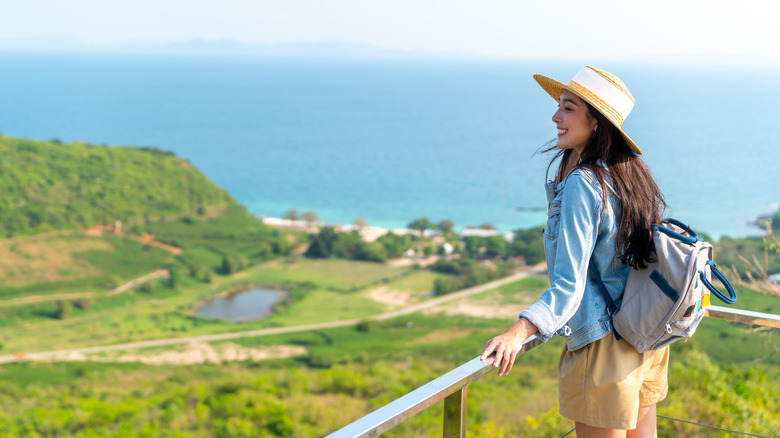Solo travel is a thrilling adventure, filled with self-discovery and freedom. But what happens when you’re halfway across the globe, alone, and suddenly so sick you can barely think straight? It’s a scenario every solo traveler dreads. This article dives deep into how to prepare for, handle, and recover from serious illness while traveling alone, ensuring you’re equipped to face the unexpected with confidence.
Why Illness Hits Harder When You’re Solo
Traveling alone means you’re your own support system. When sickness strikes, there’s no one to fetch medicine, make decisions, or hold your hand through a feverish night. The isolation can amplify both physical symptoms and emotional stress, making even a mild illness feel overwhelming.
The Unique Challenges of Being Sick Abroad
From language barriers to unfamiliar healthcare systems, being ill in a foreign country adds layers of complexity. You might struggle to explain your symptoms or navigate a hospital’s bureaucracy, all while feeling disoriented and vulnerable.
My Own Brush with Illness Abroad
On a solo trip to Thailand, I once woke up in a Chiang Mai hostel with a fever so intense I couldn’t stand. My phone was my lifeline, connecting me to a local clinic, but the fear of being alone in that moment was paralyzing. That experience taught me the importance of preparation, which I’ll share throughout this guide.
Preparing for Illness Before You Travel
Preparation is your best defense against the chaos of getting sick abroad. A little planning can make a big difference when you’re too ill to think clearly.
Build a Travel Health Kit
A well-stocked health kit is a solo traveler’s safety net. Pack essentials to cover common ailments and emergencies.
- Pain relievers: Ibuprofen or acetaminophen for fevers and aches.
- Antidiarrheal medication: Loperamide for sudden stomach issues.
- Antihistamines: For allergies or unexpected reactions.
- Prescription meds: Enough for your trip, plus a week’s extra.
- First-aid supplies: Bandages, antiseptic wipes, and a thermometer.
Research Your Destination’s Healthcare System
Before you go, look up local hospitals, clinics, and pharmacies. Apps like Google Maps or TripAdvisor can help you locate trusted facilities. For example, in Japan, clinics often require cash payments, while in the UK, NHS services may be accessible but slow for non-residents.
Get Travel Insurance with Medical Coverage
Travel insurance isn’t optional—it’s a must. Policies like those from World Nomads or Allianz cover medical emergencies, hospital stays, and even trip cancellations due to illness. Compare plans to ensure they include repatriation in case you need to return home.
| Insurance Provider | Key Features | Best For |
|---|---|---|
| World Nomads | Emergency medical, 24/7 support | Adventure travelers |
| Allianz | Comprehensive coverage, trip cancellation | Budget travelers |
| SafetyWing | Affordable, flexible plans | Digital nomads |
Learn Basic Local Phrases
Knowing how to say “I need a doctor” or “I’m sick” in the local language can be a game-changer. Apps like Duolingo or Google Translate can help you practice key phrases before you go.
What to Do When You’re Too Sick to Think
When illness hits and your brain feels like it’s swimming in fog, having a clear plan can save you from panic. Here’s how to manage the situation step-by-step.
Step 1: Stay Calm and Assess Your Symptoms
Panicking worsens everything. Take a moment to breathe and evaluate your symptoms. Are you dizzy, feverish, or unable to keep food down? Write down what you’re feeling if you can—it’ll help when you seek care.
Step 2: Reach Out for Help
Even when you’re alone, help is closer than you think. Contact your accommodation’s staff, a fellow traveler, or a local emergency line. In my Thailand ordeal, the hostel manager called a clinic for me, bridging the language gap.
Emergency Numbers by Region
- Europe: 112
- USA/Canada: 911
- Australia: 000
- Japan: 119
Step 3: Use Technology to Your Advantage
Your smartphone is your best friend when you’re sick. Apps like Teladoc or Doctor on Demand offer virtual consultations, while Google Translate can help you communicate with local doctors. Keep a list of emergency contacts in your phone, including your insurance provider and a trusted friend or family member.
Step 4: Seek Medical Care
If symptoms persist, don’t delay. Visit a pharmacy for over-the-counter remedies or head to a clinic or hospital. In many countries, pharmacies can provide basic medications without a prescription, but for serious issues, a doctor’s visit is non-negotiable.
Pros and Cons of Seeking Care Abroad
Pros:
- Quick access to care in many urban areas.
- Often cheaper than in the US or other high-cost countries.
- English-speaking doctors are common in tourist areas.
Cons:
- Language barriers in rural or less touristy regions.
- Variable quality of care depending on the country.
- Potential for high costs without insurance.
Coping Emotionally While Sick and Alone
Physical symptoms are only half the battle. Being sick far from home can trigger anxiety, loneliness, or fear. Here’s how to manage the emotional toll.
Lean on Your Support Network
Even from thousands of miles away, friends and family can provide comfort. A quick video call with my sister during my Thailand illness reminded me I wasn’t as alone as I felt. Apps like WhatsApp or Skype make staying connected easy.
Practice Self-Compassion
It’s okay to feel scared or frustrated. Remind yourself that you’re capable of handling this. Journaling or meditating can help you process emotions when you’re too sick to move.
Find Small Comforts
Little things—like a favorite playlist, a cozy blanket, or a familiar snack—can lift your spirits. When I was stuck in bed in Chiang Mai, streaming a silly comedy on Netflix gave me a much-needed laugh.
Recovering and Getting Back on Track
Once you’re on the mend, focus on recovery to get back to enjoying your trip. Rushing things can lead to a relapse, so take it slow.
Rest and Hydrate
Your body needs time to heal. Stock up on water, electrolyte drinks, or broths from a local market. In many countries, pharmacies sell rehydration salts, which are a lifesaver for stomach bugs.
Adjust Your Itinerary
Be flexible with your plans. If you miss a day of sightseeing, reschedule or swap it for a low-energy activity, like a museum visit. Most attractions, like the Louvre or Machu Picchu, allow ticket changes with advance notice.
Follow Up on Your Health
If you’re prescribed medication, follow the regimen exactly. If symptoms linger, consider a follow-up visit or a virtual consultation through platforms like HealthTap. Keep records of your treatment for insurance claims.
People Also Ask (PAA)
Based on Google’s common queries, here are answers to questions solo travelers often ask about illness abroad.
What should I do if I get sick while traveling alone?
Stay calm, assess your symptoms, and seek help from your accommodation or a local clinic. Use apps like Google Translate to communicate and ensure you have travel insurance for medical coverage.
How do I find a doctor abroad?
Search for hospitals or clinics on Google Maps or use apps like Zocdoc to locate English-speaking doctors. Your hotel or hostel staff can also recommend trusted providers.
Is travel insurance necessary for solo travel?
Yes, travel insurance is critical. It covers medical emergencies, trip cancellations, and unexpected costs. Compare plans on sites like InsureMyTrip to find one that suits your needs.
What are the best apps for medical help while traveling?
Apps like Teladoc, Doctor on Demand, and Google Translate are invaluable for virtual consultations and communication. Maps.me can also help you locate nearby pharmacies or hospitals offline.
FAQ Section
How can I prepare for getting sick on a solo trip?
Pack a travel health kit, research local healthcare options, and get travel insurance. Learn basic phrases in the local language and save emergency contacts in your phone.
What if I can’t communicate with doctors abroad?
Use translation apps like Google Translate or iTranslate to explain your symptoms. Many tourist areas have English-speaking doctors, especially in urban hospitals.
How do I know if I need to see a doctor while traveling?
If symptoms like high fever, severe pain, or persistent vomiting last more than a day, seek medical care. Trust your instincts—if you feel something’s seriously wrong, don’t wait.
Can I get medication abroad without a prescription?
In many countries, pharmacies sell common medications like antibiotics or pain relievers over the counter. However, always consult a pharmacist or doctor to ensure safety.
How do I stay safe while sick in a foreign country?
Stay in a reputable accommodation, keep your valuables secure, and inform someone you trust about your condition. Avoid sharing personal details with strangers.
Tools and Resources for Solo Travelers
Here’s a quick guide to the best tools for managing illness abroad, ensuring you’re prepared for any scenario.
| Tool/Resource | Purpose | Where to Get It |
|---|---|---|
| Google Translate | Language translation | Google Play/App Store |
| Teladoc | Virtual doctor consultations | Teladoc.com |
| World Nomads | Travel insurance | WorldNomads.com |
| Maps.me | Offline maps for clinics/pharmacies | Maps.me |
Final Thoughts: You’ve Got This
Getting sick while traveling solo is scary, but it’s not insurmountable. With preparation, a clear plan, and a dash of resilience, you can handle even the worst days abroad. My Thailand fever taught me that while illness can derail your plans, it also builds your confidence in navigating life’s unpredictability. So pack that health kit, save those emergency numbers, and go explore the world—you’re tougher than you think.



